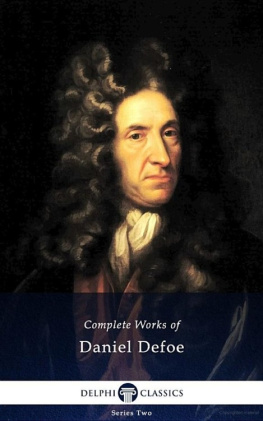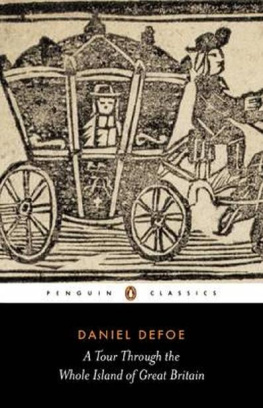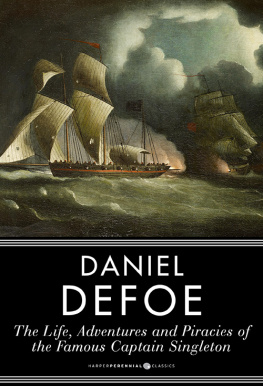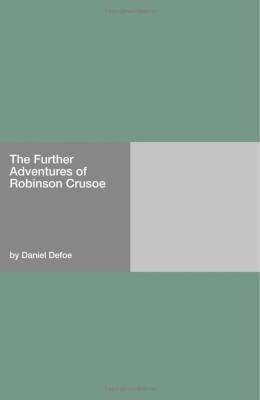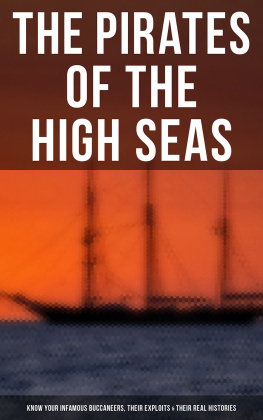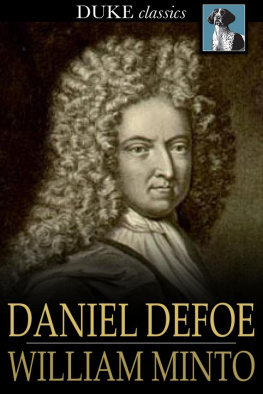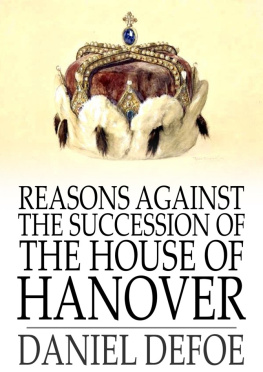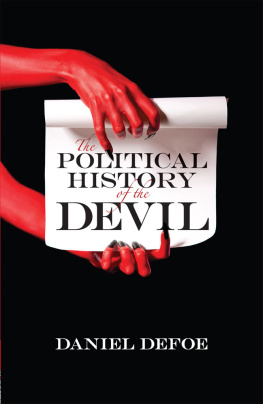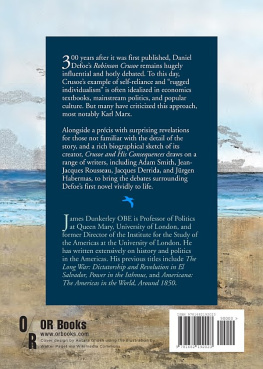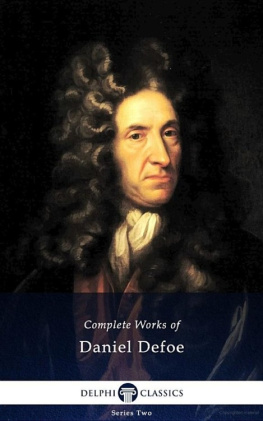Daniel Defoe - 25 Favorite Children's Books for Middle Readers
Here you can read online Daniel Defoe - 25 Favorite Children's Books for Middle Readers full text of the book (entire story) in english for free. Download pdf and epub, get meaning, cover and reviews about this ebook. year: 2011, publisher: Smashbooks, genre: Prose. Description of the work, (preface) as well as reviews are available. Best literature library LitArk.com created for fans of good reading and offers a wide selection of genres:
Romance novel
Science fiction
Adventure
Detective
Science
History
Home and family
Prose
Art
Politics
Computer
Non-fiction
Religion
Business
Children
Humor
Choose a favorite category and find really read worthwhile books. Enjoy immersion in the world of imagination, feel the emotions of the characters or learn something new for yourself, make an fascinating discovery.

- Book:25 Favorite Children's Books for Middle Readers
- Author:
- Publisher:Smashbooks
- Genre:
- Year:2011
- Rating:4 / 5
- Favourites:Add to favourites
- Your mark:
- 80
- 1
- 2
- 3
- 4
- 5
25 Favorite Children's Books for Middle Readers: summary, description and annotation
We offer to read an annotation, description, summary or preface (depends on what the author of the book "25 Favorite Children's Books for Middle Readers" wrote himself). If you haven't found the necessary information about the book — write in the comments, we will try to find it.
25 Favorite Children's Books for Middle Readers — read online for free the complete book (whole text) full work
Below is the text of the book, divided by pages. System saving the place of the last page read, allows you to conveniently read the book "25 Favorite Children's Books for Middle Readers" online for free, without having to search again every time where you left off. Put a bookmark, and you can go to the page where you finished reading at any time.
Font size:
Interval:
Bookmark:
25 Favorite Childrens Books
For Middle Readers
Table of Contents
Robinson Crusoe, by Daniel Defoe (1719)
Gullivers Travels, by Jonathan Swift (1726)
Swiss Family Robinson, by Johann David Wyss (1813)
The Legend of Sleepy Hollow, by Washington Irving (1819)
Rip Van Winkle, by Washington Irving (1820)
A Christmas Carol, by Charles Dickens (1843)
A Journey to the Centre of the Earth, by Jules Verne (1864)
Little Women, by Louisa May Alcott (1868)
Little Men, by Louisa May Alcott (1871)
The Adventures of Tom Sawyer, by Mark Twain (1876)
Black Beauty, by Anna Sewell (1877)
Treasure Island, by Robert Louis Stevenson (1883)
The Adventures of Huckleberry Finn, by Mark Twain (1884)
Heidi, by Johanna Spyri (1884)
Lorna Doone, by R. D. Blackmore (1893)
The Jungle Book, by Rudyard Kipling (1894)
The Wonderful Wizard of Oz, by L. Frank Baum (1900)
The Call of the Wild, by Jack London (1903)
A Little Princess, by Frances Hodgson Burnett (1905)
White Fang, by Jack London (1906)
The Wind in the Willows, by Kenneth Grahame (1908)
Anne of Green Gables, by Lucy Maude Montgomery (1908)
Anne of Avonlea, by Lucy Maude Montgomery (1909)
The Secret Garden, by Frances Hodgson Burnett (1911)
Pollyanna, by Eleanor H. Porter (1913)
Robinson Crusoe, by Daniel Defoe (1719)
CHAPTER I - START IN LIFE
I WAS born in the year 1632, in the city of York, of a good family, though not of that country, my father being a foreigner of Bremen, who settled first at Hull. He got a good estate by merchandise, and leaving off his trade, lived afterwards at York, from whence he had married my mother, whose relations were named Robinson, a very good family in that country, and from whom I was called Robinson Kreutznaer; but, by the usual corruption of words in England, we are now called - nay we call ourselves and write our name - Crusoe; and so my companions always called me.
I had two elder brothers, one of whom was lieutenant-colonel to an English regiment of foot in Flanders, formerly commanded by the famous Colonel Lockhart, and was killed at the battle near Dunkirk against the Spaniards. What became of my second brother I never knew, any more than my father or mother knew what became of me.
Being the third son of the family and not bred to any trade, my head began to be filled very early with rambling thoughts. My father, who was very ancient, had given me a competent share of learning, as far as house-education and a country free school generally go, and designed me for the law; but I would be satisfied with nothing but going to sea; and my inclination to this led me so strongly against the will, nay, the commands of my father, and against all the entreaties and persuasions of my mother and other friends, that there seemed to be something fatal in that propensity of nature, tending directly to the life of misery which was to befall me.
My father, a wise and grave man, gave me serious and excellent counsel against what he foresaw was my design. He called me one morning into his chamber, where he was confined by the gout, and expostulated very warmly with me upon this subject. He asked me what reasons, more than a mere wandering inclination, I had for leaving father's house and my native country, where I might be well introduced, and had a prospect of raising my fortune by application and industry, with a life of ease and pleasure. He told me it was men of desperate fortunes on one hand, or of aspiring, superior fortunes on the other, who went abroad upon adventures, to rise by enterprise, and make themselves famous in undertakings of a nature out of the common road; that these things were all either too far above me or too far below me; that mine was the middle state, or what might be called the upper station of low life, which he had found, by long experience, was the best state in the world, the most suited to human happiness, not exposed to the miseries and hardships, the labour and sufferings of the mechanic part of mankind, and not embarrassed with the pride, luxury, ambition, and envy of the upper part of mankind. He told me I might judge of the happiness of this state by this one thing - viz. that this was the state of life which all other people envied; that kings have frequently lamented the miserable consequence of being born to great things, and wished they had been placed in the middle of the two extremes, between the mean and the great; that the wise man gave his testimony to this, as the standard of felicity, when he prayed to have neither poverty nor riches.
He bade me observe it, and I should always find that the calamities of life were shared among the upper and lower part of mankind, but that the middle station had the fewest disasters, and was not exposed to so many vicissitudes as the higher or lower part of mankind; nay, they were not subjected to so many distempers and uneasinesses, either of body or mind, as those were who, by vicious living, luxury, and extravagances on the one hand, or by hard labour, want of necessaries, and mean or insufficient diet on the other hand, bring distemper upon themselves by the natural consequences of their way of living; that the middle station of life was calculated for all kind of virtue and all kind of enjoyments; that peace and plenty were the handmaids of a middle fortune; that temperance, moderation, quietness, health, society, all agreeable diversions, and all desirable pleasures, were the blessings attending the middle station of life; that this way men went silently and smoothly through the world, and comfortably out of it, not embarrassed with the labours of the hands or of the head, not sold to a life of slavery for daily bread, nor harassed with perplexed circumstances, which rob the soul of peace and the body of rest, nor enraged with the passion of envy, or the secret burning lust of ambition for great things; but, in easy circumstances, sliding gently through the world, and sensibly tasting the sweets of living, without the bitter; feeling that they are happy, and learning by every day's experience to know it more sensibly,
After this he pressed me earnestly, and in the most affectionate manner, not to play the young man, nor to precipitate myself into miseries which nature, and the station of life I was born in, seemed to have provided against; that I was under no necessity of seeking my bread; that he would do well for me, and endeavour to enter me fairly into the station of life which he had just been recommending to me; and that if I was not very easy and happy in the world, it must be my mere fate or fault that must hinder it; and that he should have nothing to answer for, having thus discharged his duty in warning me against measures which he knew would be to my hurt; in a word, that as he would do very kind things for me if I would stay and settle at home as he directed, so he would not have so much hand in my misfortunes as to give me any encouragement to go away; and to close all, he told me I had my elder brother for an example, to whom he had used the same earnest persuasions to keep him from going into the Low Country wars, but could not prevail, his young desires prompting him to run into the army, where he was killed; and though he said he would not cease to pray for me, yet he would venture to say to me, that if I did take this foolish step, God would not bless me, and I should have leisure hereafter to reflect upon having neglected his counsel when there might be none to assist in my recovery.
I observed in this last part of his discourse, which was truly prophetic, though I suppose my father did not know it to be so himself - I say, I observed the tears run down his face very plentifully, especially when he spoke of my brother who was killed: and that when he spoke of my having leisure to repent, and none to assist me, he was so moved that he broke off the discourse, and told me his heart was so full he could say no more to me.
Font size:
Interval:
Bookmark:
Similar books «25 Favorite Children's Books for Middle Readers»
Look at similar books to 25 Favorite Children's Books for Middle Readers. We have selected literature similar in name and meaning in the hope of providing readers with more options to find new, interesting, not yet read works.
Discussion, reviews of the book 25 Favorite Children's Books for Middle Readers and just readers' own opinions. Leave your comments, write what you think about the work, its meaning or the main characters. Specify what exactly you liked and what you didn't like, and why you think so.

